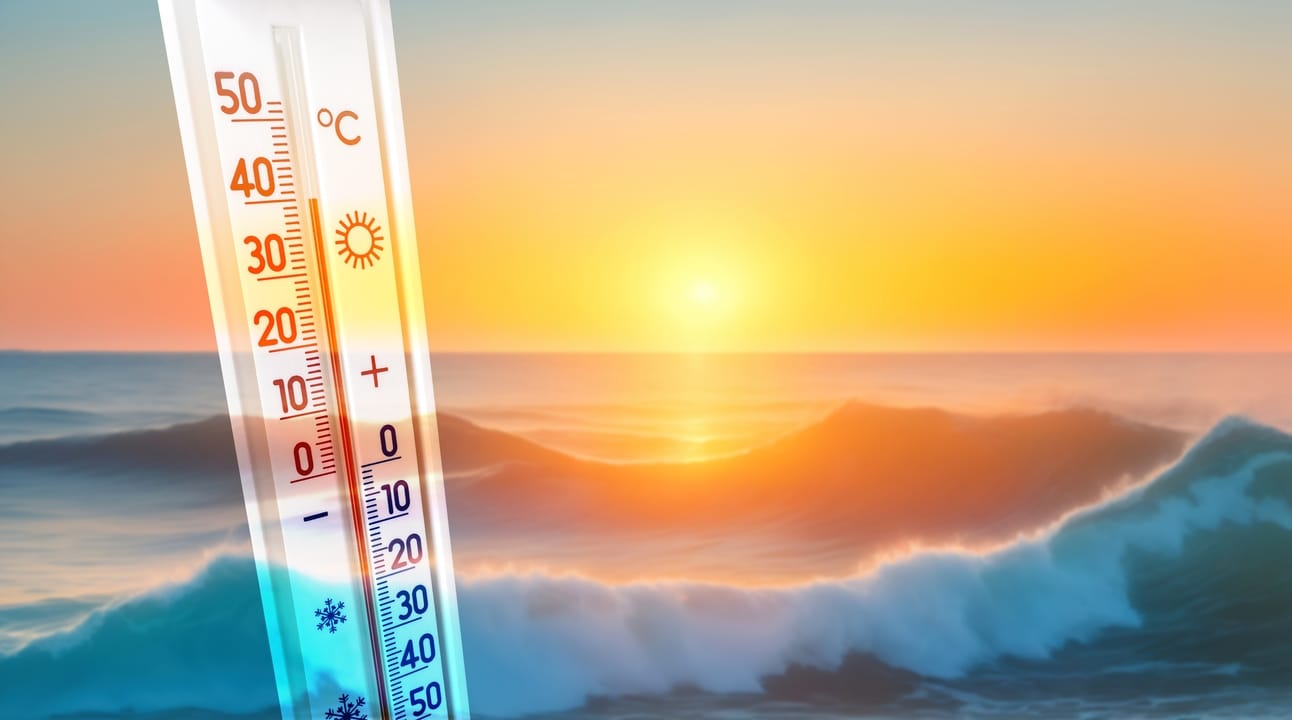Heat in the Deep: What the UK's Prolonged Marine Heatwave Means for Sea Life, Fishers—and Us
It’s only June, yet the seas around Britain are already swimming in summer heat. Sea surface temperatures (SSTs) off the coasts of Cornwall, Devon, western Ireland, and Wales are registering 2–4 °C above the seasonal average. In some areas, the water is warmer than it should be for another six weeks. What began as a meteorological anomaly has evolved into what experts now describe as a “super-intense” and long-lasting marine heatwave.

According to the Met Office, this is among the most persistent heatwave events ever recorded in UK waters. Some buoys off Ireland’s west coast have clocked sea temperatures up to 2.2 °C above average since early spring. Dr Ségolène Berthou from the Met Office explains, “This event is significant not just for its strength, but for its persistence—it has lasted for months.”
Why is this happening?
The immediate cause is a blocked weather system. High pressure over the UK has brought extended periods of sunshine, light winds, and a lack of mixing in the upper ocean—perfect conditions for a warm surface layer to form and stay put. Scientists call this effect “stratification,” where surface waters heat up and effectively seal themselves off from cooler waters below.
But this weather pattern alone doesn’t tell the full story. As Professor Daniela Schmidt of the University of Bristol points out: “Without climate change, this would be very, very unlikely.” Decades of gradual ocean warming—up to 0.6 °C per decade in parts of the North Atlantic—have laid the groundwork. The current heatwave is not a standalone event but part of a longer, intensifying pattern.
Ecological ripples: shifts, surprises, and stresses
Marine life is often more sensitive to temperature change than land species. When seas heat up quickly, the impacts cascade through the food web.
One of the most eye-catching consequences this spring has been a boom in Mediterranean octopus off the south-west coast. Fishers in Brixham, Devon, report landings of 4–6 tonnes per day, compared to just 200 kg last year. It’s a financial lifeline for some, but there’s a downside too. The octopuses are invading crab pots and eating other shellfish, disrupting more traditional catch patterns.
Elsewhere, jellyfish sightings are up, while cold-water species like cod and herring are in decline or migrating further north. Warming waters can also reduce oxygen levels, alter plankton timing, and fuel harmful algal blooms, affecting shellfish safety and aquaculture.
There are concerns that fisheries could face long-term instability. A sudden windfall from a warm-water species is no guarantee of future sustainability. As Barry Young from Brixham Trawler Agents put it: “They’re grabbing it with both hands while they can—but no one knows how long it’ll last.”

Hotter seas mean hotter shores
Marine heatwaves don’t just affect what’s in the water. Warmer seas can exacerbate onshore heatwaves by reducing sea breezes and radiating heat inland. The UK just logged its hottest and sunniest spring on record, with average temperatures up 1.4 °C and sunshine levels 43% above normal. The unusually warm sea has played a role.
What can be done?
While climate change mitigation is the long-term answer, there are several practical steps that can be taken now:
Expand ocean monitoring networks—buoys, satellite tracking, and Argo floats—to get real-time data and better predict future marine heatwaves.
Support adaptive fisheries management, including flexible quotas and catch limits that reflect changing species patterns.
Designate temporary conservation zones to give vulnerable species and habitats breathing space during extreme events.
Integrate marine heatwave forecasts into public planning—for aquaculture, recreation, and coastal resilience.
Accelerate climate action. As Prof. Schmidt puts it: “This is the climate future we were warned about—just arriving faster than many expected.”
The view from WaterMatters.life
For those of us who work with or care about water, this event is a bellwether. Marine heatwaves are no longer rare, freak events—they’re part of the new normal. And they’re no longer just the concern of oceanographers and trawlermen. They affect what we eat, how we plan our coastlines, and even how hot our cities get in summer.
If the ocean is a mirror to our climate, then it’s heating up fast—and reflecting a need for urgent, intelligent action.



